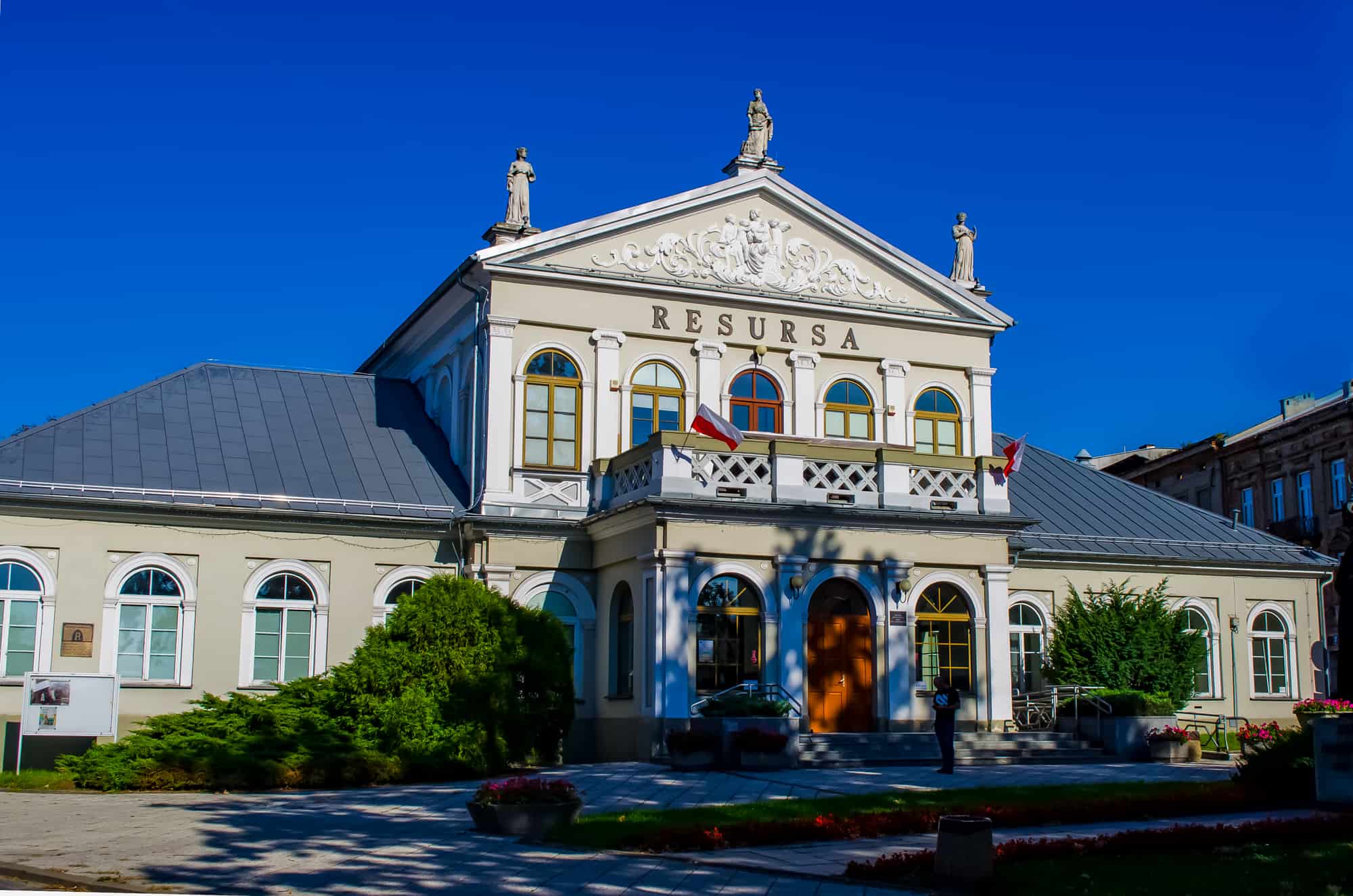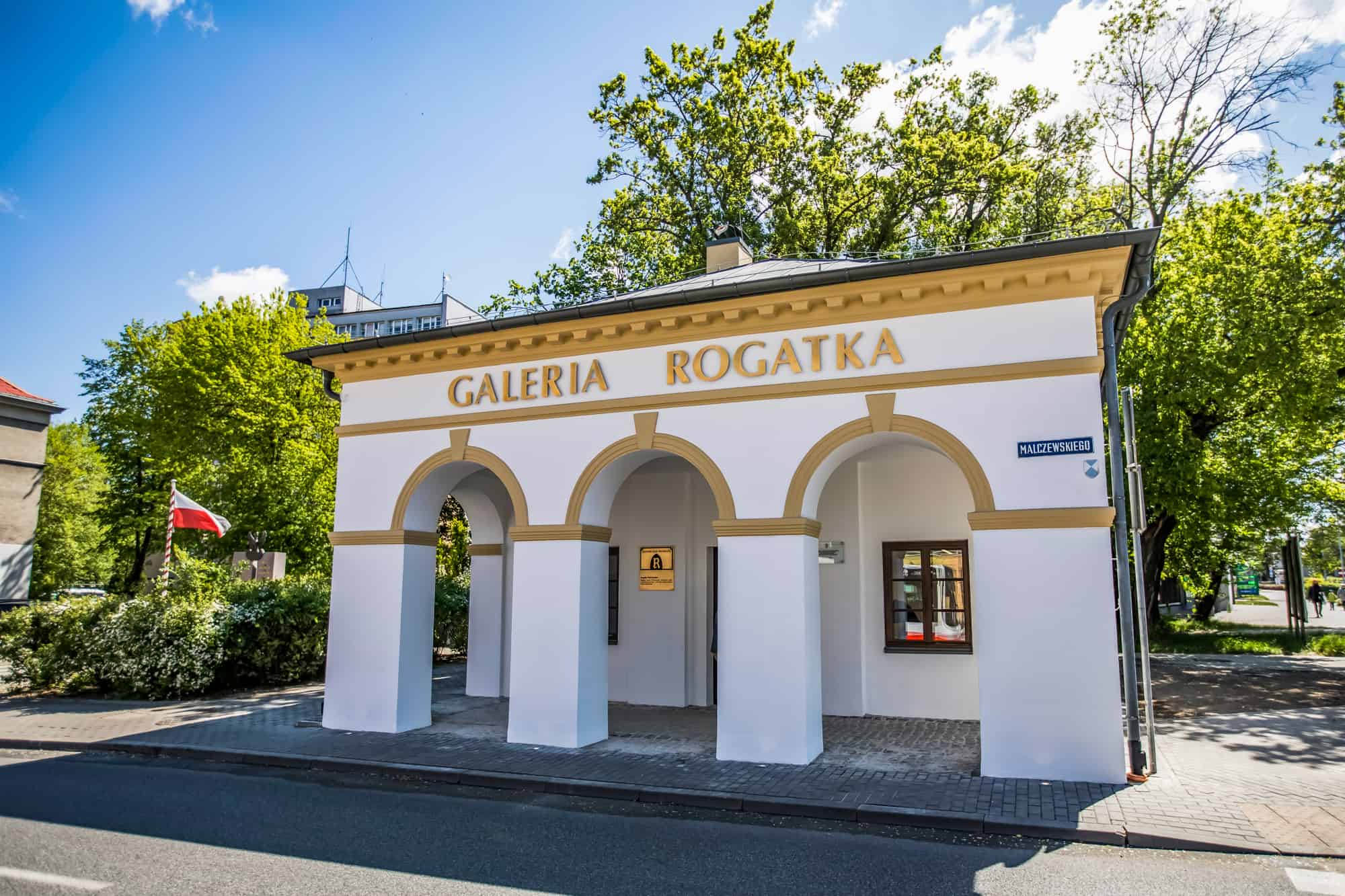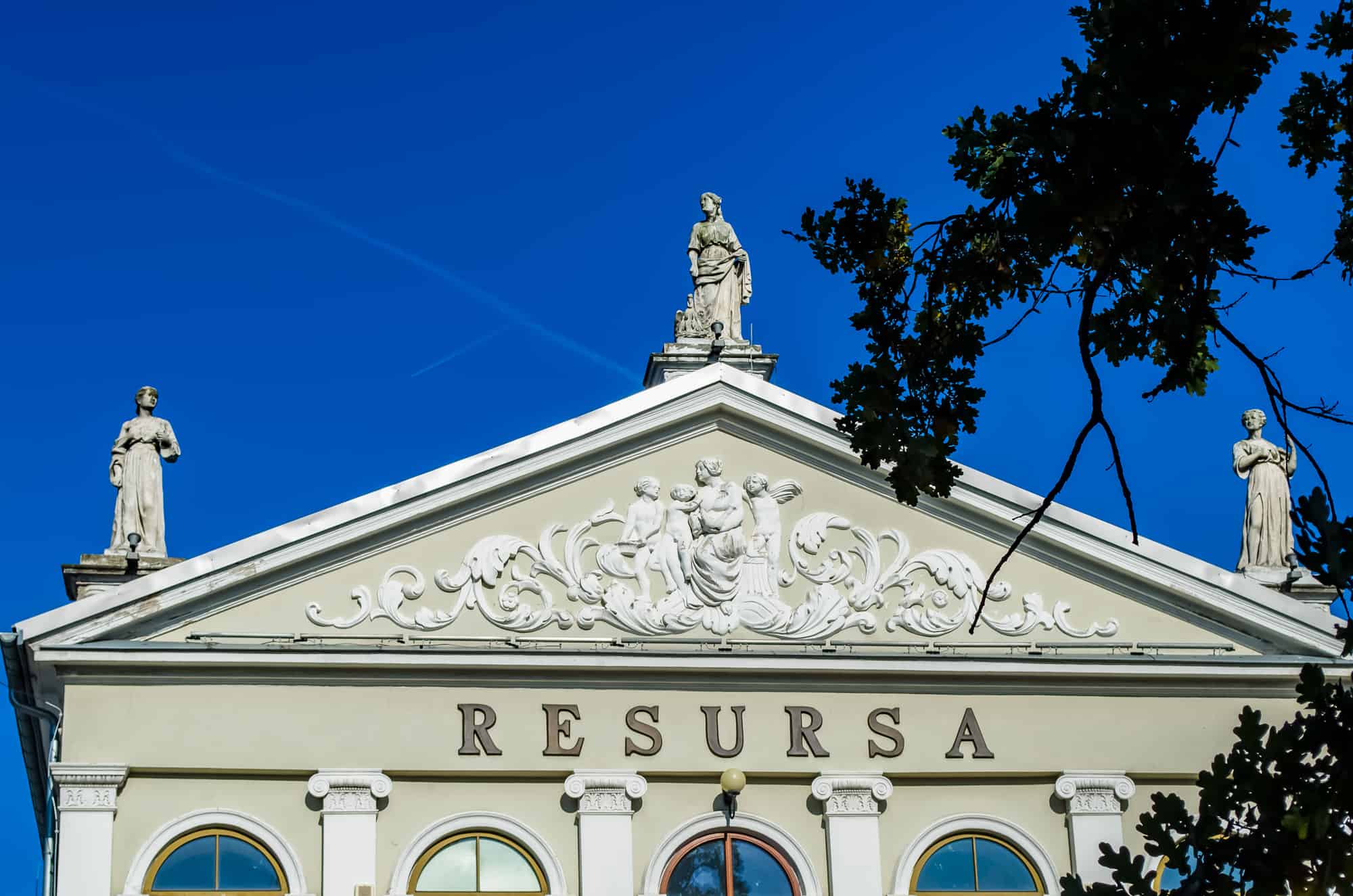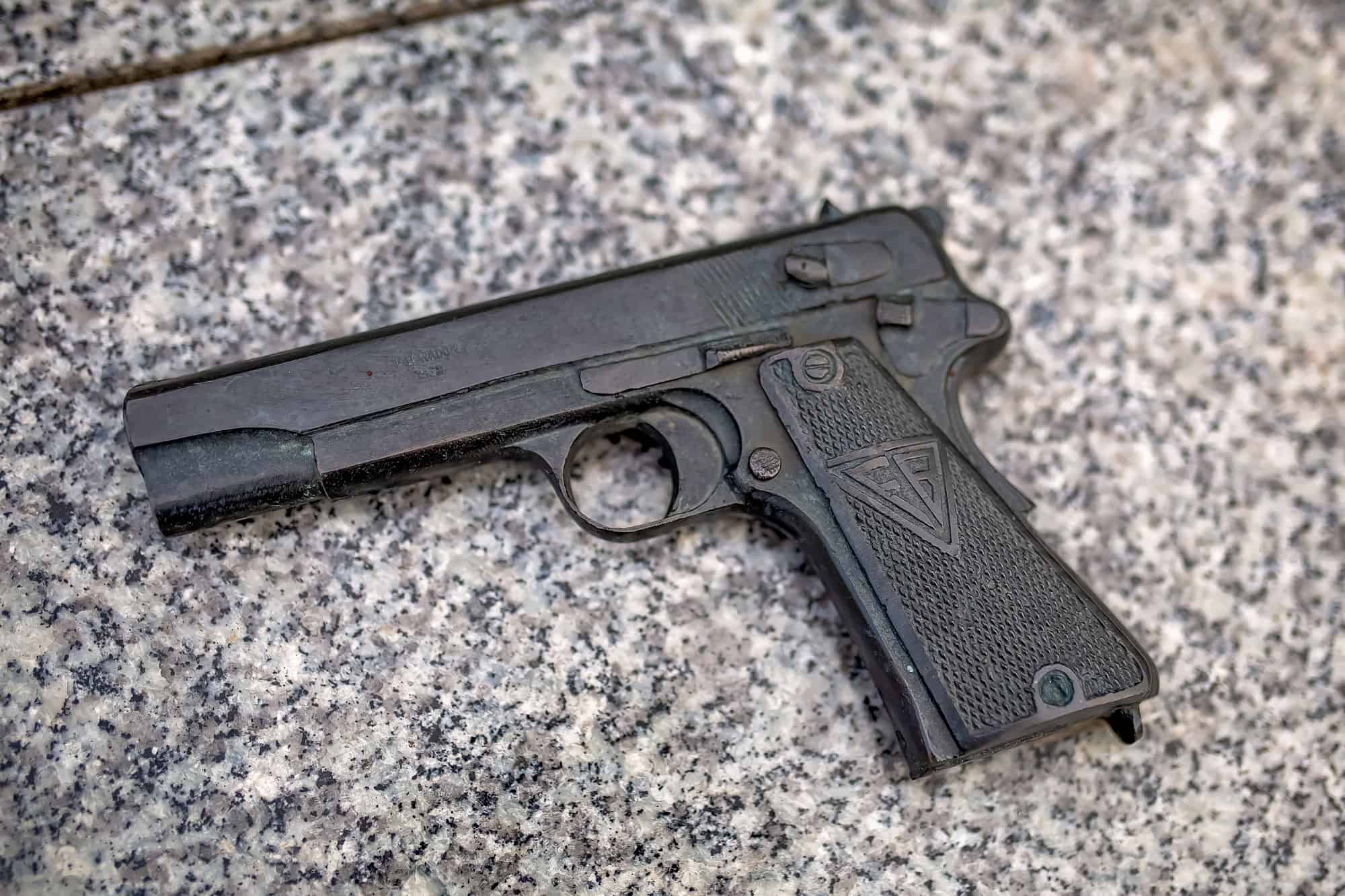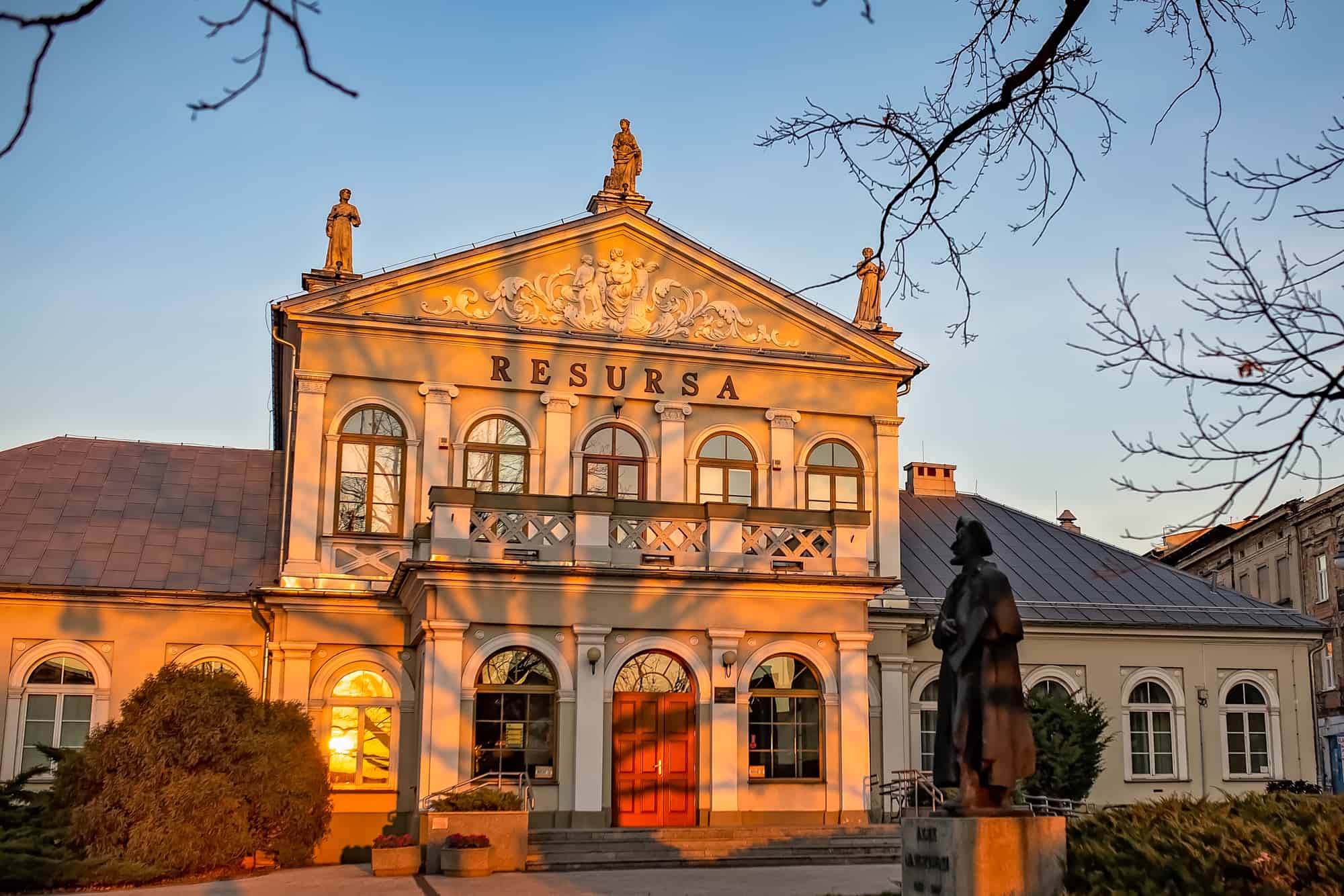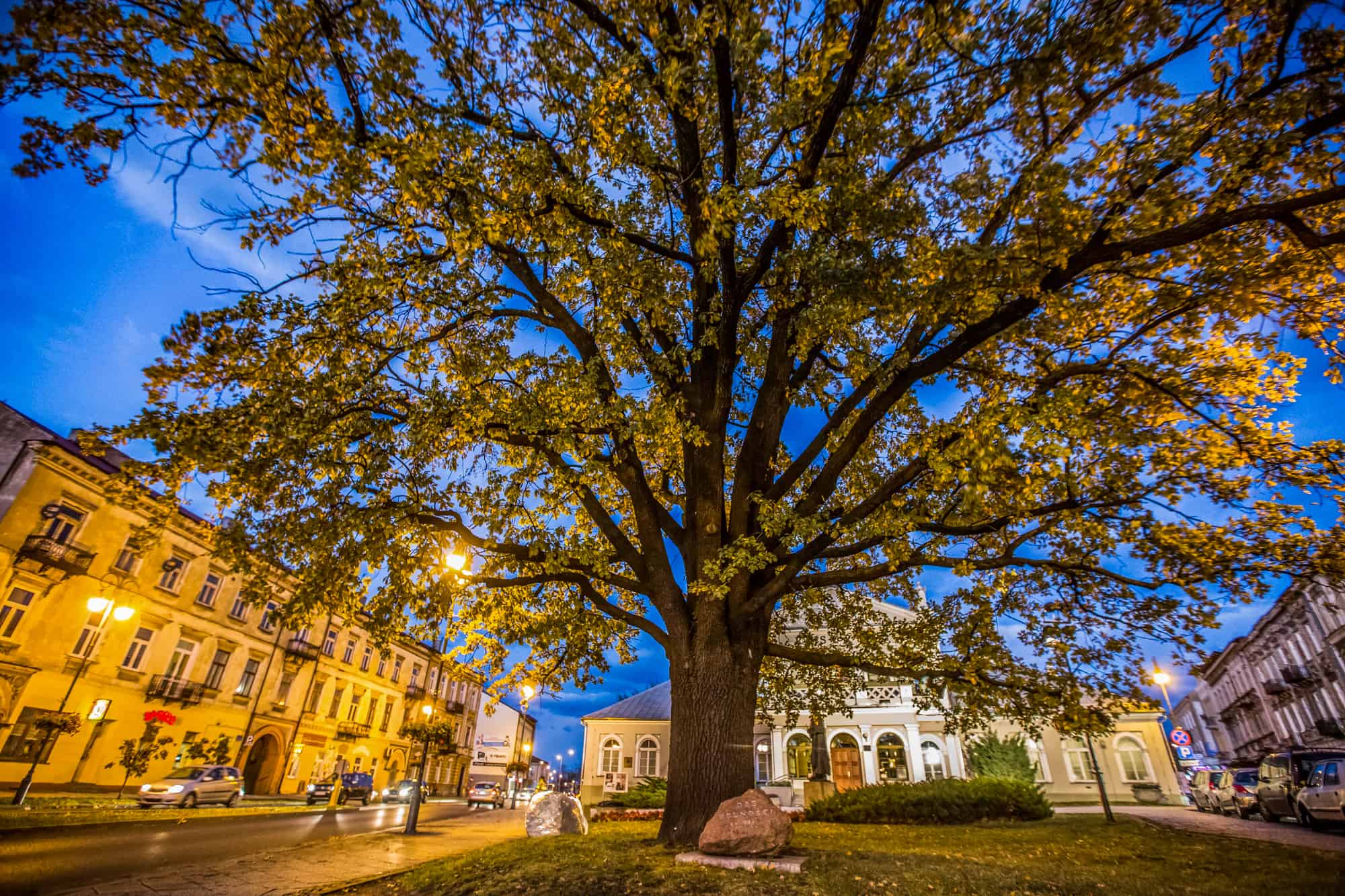RESURSA OBYWATELSKA (SOCIAL CLUB)
The oldest institution of culture in Radom and an example of community traditions of Radom inhabitants. Near the 19th-century town gate (at present: the artistic Rogatka Gallery).
It was constructed in the years 1851-1852 at the fork of the roads to Warsaw and Kozienice. It was established for a noble reason: Resursa was to provide resources for the maintenance of the neighbouring St Kazimierz hospital (the building of the present Aviator hotel) and carry out cultural activities. During the war, the building housed a field hospital. It witnessed dramatic events: during the Second World War the facility was transformed into the “Deutsches Haus” where on 23 April 1943 partisans carried out an attempt on the life of the Nazis and killed commander of the town police and staroste Fritzman and injured 12 Germans.
While approaching the Resursa, have a look at the roof of the building. It is decorated with three stone ladies. They are patrons of various fields of art: Melpomene (muse of tragedy), Klio (patron of history) and Euterpe (patron of lyric song). At the entrance of the building, you will see one of symbols of Radom industry: a ViS gun, which is appreciated all over the world.
Next to Resursa there is a statue of Jacek Malczewski, famous inhabitant of Radom and the most outstanding representative of the Symbolism in Polish painting. Nearby, there is the Oak of Freedom: over a one-hundred-year-old tree, which was planted as a memento of Radom regaining the independence. The date of 2 November on the commemorative stone is not a mistake as Radom inhabitants proclaimed the republic nine days before the official independence day of Poland. As a result, the town was tidied fast and effectively after the war and equal rights for women were introduced.
Today, these are film, art and exhibitions, theatre, cinema, history, music and literature that reign in the Resursa. Resursa also organises such cultural events like the “Street of Tradition”, “Anima Urbis”, the “Okna” Philosophy Festival, “Kaziki” – Town Patron Day, and Meetings with Jewish Culture called “Ślad”.
